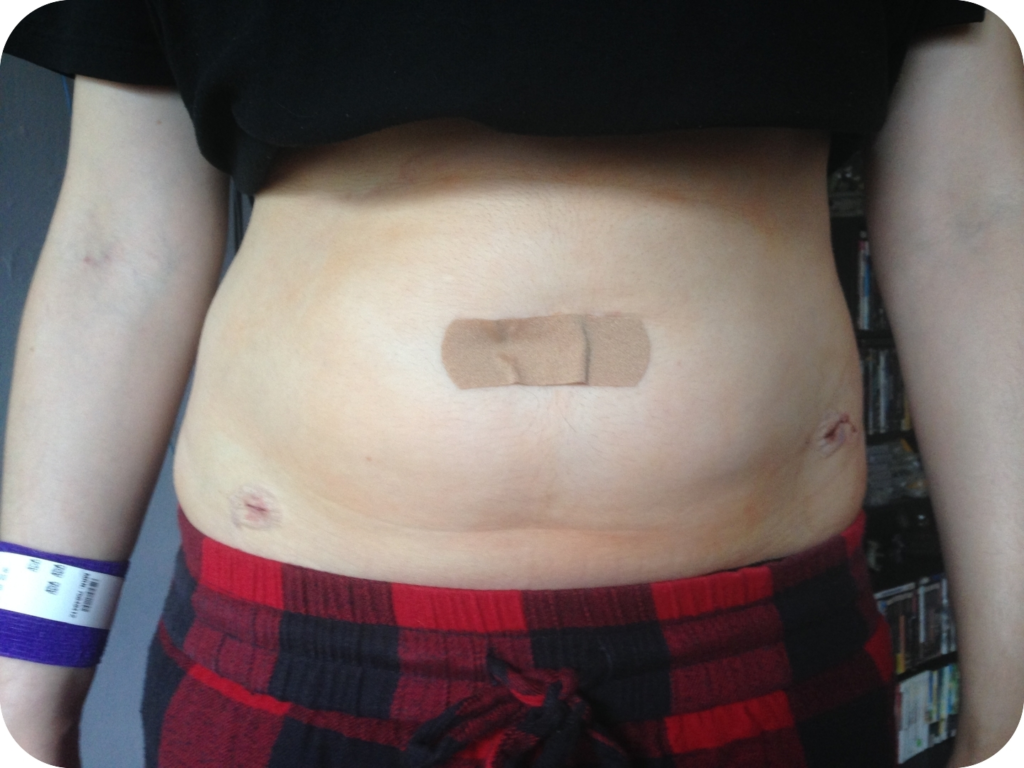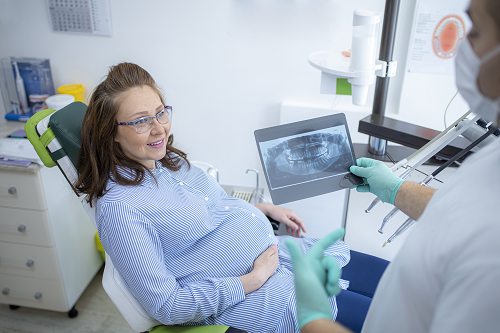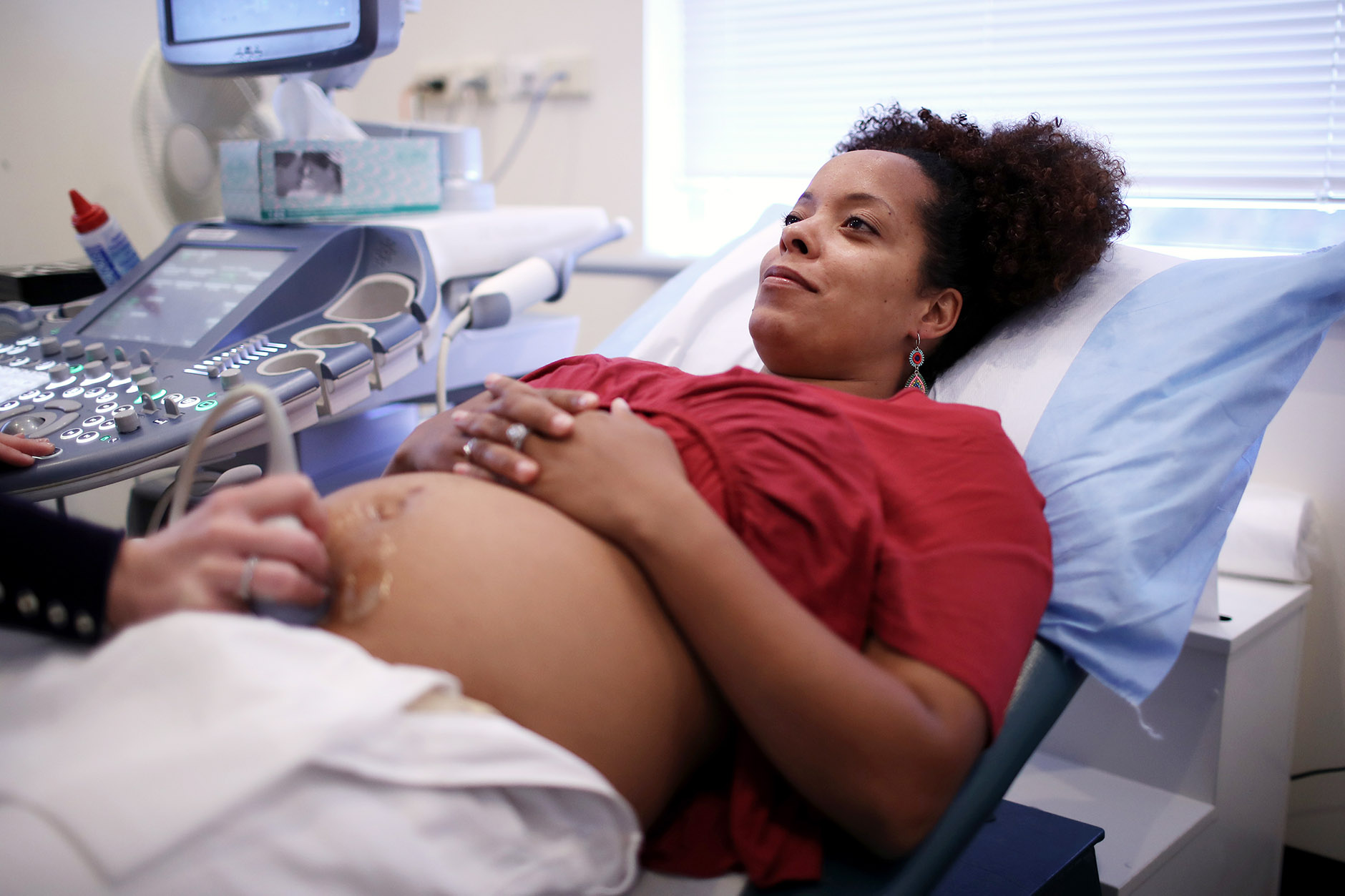Deciding to have a child is a significant and life-changing decision for many couples. For those who have undergone a tubal ligation, commonly referred to as having their tubes tied, the desire to conceive again can lead them to consider a procedure known as tubal reversal. Tubal reversal, or tubal ligation reversal, is a surgical procedure aimed at restoring fertility by reconnecting the fallopian tubes that were previously cut or blocked as a form of permanent contraception. This procedure offers a ray of hope for individuals or couples wishing to expand their families after a change in life circumstances or personal decisions.
The journey to conception after tubal reversal is filled with many questions, one of the most pressing being, “How soon after tubal reversal can I try to conceive?” This question is not only about physical readiness but also involves understanding the emotional and psychological aspects of preparing for pregnancy after such a significant surgical procedure. The decision to undergo tubal reversal often comes after much contemplation, and the subsequent desire to conceive is accompanied by a mix of excitement, anticipation, and concerns about fertility and the timing of pregnancy attempts.
The process of trying to conceive after tubal reversal is unique for each individual and can be influenced by various factors, including the method of the original tubal ligation, the type of reversal procedure, the individual’s overall health and fertility, and the presence of any other reproductive issues. Given these complexities, it’s crucial for those considering this path to be well-informed about what to expect, how to prepare for the best possible outcome, and how to navigate the emotional landscape of attempting to conceive post-surgery.
Recommended: Does Family Planning Affect Future Pregnancy?
In this article, we will delve into the crucial aspects of planning for pregnancy after tubal reversal. From understanding the surgical procedure and its implications for fertility to discussing the ideal timing for conception attempts and the emotional considerations to keep in mind, our goal is to provide comprehensive insights to support you on your journey to parenthood.
Recovery After Tubal Reversal
The journey towards conception after a tubal reversal begins with a successful recovery from the surgery. Tubal reversal is a significant surgical procedure that requires careful post-operative care to ensure the best possible outcome. Understanding the recovery process, what to expect, and how to care for oneself during this time is crucial for anyone who has undergone or is considering tubal reversal.

Immediate Post-Operative Period
Immediately following the surgery, patients are typically observed in a recovery area as they wake up from anesthesia. It’s common to experience grogginess, mild discomfort, or pain around the incision site. Healthcare providers will monitor vital signs, manage pain, and ensure that you’re stable before allowing you to go home. Most tubal reversal surgeries are performed on an outpatient basis, meaning patients can go home the same day, provided there are no complications.
Recommended: Does Ovulation Make You Emotional?
The First Few Weeks
The initial weeks after the procedure are critical for healing. Patients may experience varying degrees of abdominal pain, bloating, and fatigue. It’s important to follow the surgeon’s instructions on wound care to prevent infection. Activities such as lifting heavy objects, vigorous exercise, and sexual intercourse should be avoided to allow the body to heal properly. The exact duration of these restrictions can vary, but it’s generally recommended to wait 2-6 weeks before resuming normal activities, based on the individual’s recovery and the surgeon’s advice.
Monitoring for Complications
Complications from tubal reversal surgery are rare but can include infection, bleeding, or damage to surrounding organs. Signs of a potential complication include fever, severe abdominal pain, heavy bleeding, or discharge from the incision site. It’s important to contact your healthcare provider immediately if you experience any of these symptoms.
Recommended: Can You Be a Surrogate With Your Tubes Removed?
Follow-Up Appointments
Follow-up appointments are a crucial part of the recovery process. These visits allow the surgeon to monitor the healing of the incision and the fallopian tubes. It’s also an opportunity to discuss any concerns or questions you may have about the recovery process or trying to conceive. Depending on the surgeon’s assessment, additional imaging tests, such as a hysterosalpingogram (HSG), may be recommended to ensure that the fallopian tubes are open and functional.
Tips for a Smooth Recovery
- Rest and Listen to Your Body: Prioritize rest and avoid overexerting yourself. If you feel tired, allow your body to rest.
- Stay Hydrated and Maintain a Healthy Diet: Proper nutrition and hydration support healing. Focus on a balanced diet rich in vitamins, minerals, and protein to aid tissue repair.
- Manage Pain as Advised by Your Doctor: Use medications as prescribed for managing pain. Avoid using any over-the-counter medications without your doctor’s approval.
- Wear Comfortable Clothing: Loose, comfortable clothing can help avoid irritation around the incision site.
- Seek Support: Emotional support from friends, family, or a support group can be beneficial during recovery.
Preparing for Conception
Once recovery is underway and you’ve received clearance from your healthcare provider, you can start preparing for conception. This period is an excellent time to focus on optimizing your health, tracking ovulation, and continuing to follow any recommendations your healthcare provider provides to enhance fertility.
Recommended: How To Get Rid Of Smelly Discharge During Pregnancy
Recovery from tubal reversal is a time of healing, both physically and emotionally. By taking appropriate care and following your healthcare provider’s advice, you can navigate this phase effectively, setting the stage for a healthy attempt at conceiving when the time is right.
How Soon After Tubal Reversal Can I Try To Conceive?
After a tubal reversal, the general recommendation is to wait for a healing period before attempting to conceive. This healing period allows your body to recover from the surgery and for your fallopian tubes to heal properly, optimizing the chances of a successful pregnancy.
Most healthcare providers recommend waiting about 2 to 3 months after a tubal reversal before trying to conceive. This timeframe can vary based on individual health factors and the specifics of your surgery, so it’s essential to follow the guidance of your surgeon or obstetrician. They will consider factors such as how your body is healing, any complications from the surgery, and your overall health to give personalized advice.
During your follow-up appointments, your doctor may perform tests to assess the healing of your fallopian tubes and confirm that they are open and functioning correctly. These evaluations are crucial to ensuring that your body is ready for pregnancy.
Recommended: Top 6 Signs Of Poor Egg Quality You Should Know
Remember, while tubal reversal can restore fertility for many women, success rates can vary based on age, the method used for the initial tubal ligation, and the length and health of the remaining fallopian tubes. Discussing these factors with your healthcare provider can give you a better understanding of your specific situation and chances of conceiving after a tubal reversal.
The Right Time to Try Conceiving After Tubal Reversal
Determining the optimal time to attempt conception after a tubal reversal is a crucial step for couples looking to expand their family. This decision, influenced by physical healing, emotional readiness, and fertility considerations, requires thoughtful planning and guidance from healthcare professionals. Let’s delve into the factors that can help determine the right time to embark on the journey toward pregnancy after undergoing tubal reversal surgery.

Physical Recovery and Healing
The primary consideration in deciding when to try conceiving after tubal reversal is ensuring complete physical recovery. The healing process varies among individuals, but generally, the body needs time to recover from surgery and for the fallopian tubes to heal properly. Most healthcare providers recommend waiting at least two full menstrual cycles before attempting to conceive. This waiting period allows the fallopian tubes to heal adequately and can also help in tracking ovulation and timing intercourse for conception.
Recommended: Knee To Chest Position In Labor: All You Need To Know
Consultation with Healthcare Providers
Ongoing dialogue with healthcare providers is crucial in determining the right time to start trying for a baby. During post-operative visits, your surgeon can assess the healing process and may perform tests, such as a hysterosalpingogram (HSG), to ensure that the fallopian tubes are open and functioning correctly. These assessments are vital in providing a green light for safely starting to try to conceive. Additionally, consulting with a fertility specialist can offer personalized advice based on your specific health and fertility status.
Lifestyle Considerations
Adopting a healthy lifestyle can significantly impact fertility and the success of conception attempts. Before trying to conceive, focus on maintaining a healthy weight, eating a balanced diet, avoiding smoking and excessive alcohol consumption, and managing stress. These lifestyle modifications can improve general health and potentially increase the chances of a successful pregnancy.
When to Seek Further Assistance
If conception does not occur within a reasonable timeframe after starting to try – typically a year for women under 35 and six months for women over 35 – consulting with a fertility specialist is advised. They can offer further evaluations and discuss additional fertility treatments or interventions that may be beneficial.
Deciding when to try conceiving after a tubal reversal involves a careful assessment of physical recovery, fertility considerations, emotional readiness, and lifestyle factors. With proper guidance from healthcare providers and a supportive environment, couples can determine the best time to embark on this exciting and hopeful journey towards expanding their family. Patience, persistence, and positivity are key elements in navigating the path to conception after tubal reversal surgery.
Monitoring Your Health and Fertility
After undergoing tubal reversal surgery, monitoring your health and fertility becomes an essential step in the journey toward conception. This phase not only involves tracking ovulation and understanding your body’s fertility signals but also ensuring that your overall health is conducive to a healthy pregnancy. Here’s a deeper dive into how to effectively monitor your health and fertility post-tubal reversal.
Regular Gynecological Check-ups
Regular check-ups with a gynecologist or a fertility specialist are crucial after a tubal reversal. These appointments allow your healthcare provider to monitor your recovery from the surgery and assess your reproductive health. During these visits, your doctor may perform pelvic exams, order blood tests to check hormone levels, and recommend ultrasounds to observe the health of your ovaries, fallopian tubes, and uterus. These assessments can identify any potential issues early on and ensure that your reproductive system is in optimal condition for conceiving.
Fertility Assessments
Fertility assessments can offer valuable insights into your chances of successful conception. These may include:
- Ovarian Reserve Testing: Measures the quantity and quality of your eggs, providing information about your potential fertility.
- Hysterosalpingogram (HSG): A specialized X-ray used to examine the fallopian tubes and uterine cavity, ensuring that the tubes are open and the uterine shape is normal, which are critical for successful conception.
- Semen Analysis: For couples trying to conceive, analyzing the partner’s semen can be equally important to assess sperm count, motility, and morphology.
These assessments can guide your healthcare provider in offering personalized advice and identifying any additional treatments or interventions that may enhance your fertility.
Recommended: Can You Drink Gatorade While Pregnant?
Tracking Ovulation
Understanding your menstrual cycle and tracking ovulation are key factors in timing intercourse for conception. Several methods can help identify your fertile window:
- Ovulation Predictor Kits (OPKs): Detect the surge in luteinizing hormone (LH) that precedes ovulation.
- Basal Body Temperature (BBT) Charting: This involves taking your temperature each morning before getting out of bed. A slight increase in BBT can indicate ovulation has occurred.
- Cervical Mucus Monitoring: Changes in cervical mucus throughout your cycle can signal fertile days. Fertile mucus is clear, stretchy, and similar to egg whites.
Utilizing one or a combination of these methods can significantly increase your chances of timing intercourse correctly to achieve pregnancy.
Lifestyle and Nutritional Factors
Your overall health plays a significant role in fertility. Adopting a healthy lifestyle can improve your chances of conception and support a healthy pregnancy. Consider the following:
- Diet and Nutrition: A balanced diet rich in fruits, vegetables, whole grains, lean proteins, and healthy fats can support fertility. Certain nutrients, like folic acid, are essential for a healthy pregnancy.
- Exercise: Regular, moderate exercise can improve fertility by maintaining a healthy weight and reducing stress. However, excessively intense exercise may negatively impact fertility.
- Avoid Harmful Substances: Smoking, excessive alcohol consumption, and recreational drug use can adversely affect fertility. Limiting or eliminating these substances is crucial when trying to conceive.
- Stress Management: High levels of stress can impact hormonal balance and ovulation. Techniques such as yoga, meditation, or counseling can help manage stress levels.
Monitoring your health and fertility after tubal reversal is a multifaceted approach that encompasses regular medical check-ups, fertility assessments, lifestyle adjustments, and emotional support. By actively engaging in your health and fertility journey, you can increase your chances of achieving a successful pregnancy while ensuring your well-being throughout the process.
Emotional Considerations
The emotional journey of trying to conceive (TTC) after a tubal reversal can be as significant as the physical journey. The decision to reverse a tubal ligation often comes after considerable thought, and the subsequent attempts to conceive can bring about a rollercoaster of emotions. Acknowledging and managing these emotional aspects is crucial for the well-being of both partners. Let’s explore the key emotional considerations and strategies for support during this period.

Processing the Decision
The choice to undergo tubal reversal often signifies a major life decision, one that may be driven by changes in personal circumstances, relationships, or the desire to expand a family. It’s important to fully process this decision, recognizing and accepting the emotions that come with it—be it excitement, anxiety, hope, or fear. Couples should ensure they are making this choice for reasons that feel right to them and should consider discussing their feelings and expectations openly with each other.
Navigating the Emotional Rollercoaster
Trying to conceive after tubal reversal introduces a spectrum of emotions. The initial excitement and hope can sometimes give way to impatience or disappointment if conception doesn’t happen as quickly as hoped. It’s normal to experience a wide range of feelings, including:
- Joy and Hope: With each cycle, there’s renewed hope of becoming pregnant.
- Anxiety and Stress: Worrying about the chances of conception or potential complications can be stressful.
- Disappointment and Grief: Not conceiving as soon as expected can lead to feelings of disappointment or grief, similar to those experienced by couples facing other fertility challenges.
Acknowledging these feelings as valid and allowing yourself to experience them fully is a crucial step in managing emotional health.
Building a Support System
Having a robust support system is invaluable when trying to conceive after tubal reversal. This system can include your partner, family, friends, healthcare providers, or support groups. Sharing your experiences and feelings with others who understand can provide comfort and perspective. Additionally, some may find it helpful to seek professional counseling to navigate complex emotions and relationship dynamics during this time.
Managing Stress and Anxiety
High levels of stress and anxiety can negatively impact fertility and the overall TTC experience. Finding effective ways to manage stress is essential. Techniques might include:
- Mindfulness and Meditation: Practices like mindfulness can help center your thoughts and reduce anxiety.
- Exercise: Regular physical activity can alleviate stress and improve overall well-being.
- Hobbies and Interests: Engaging in activities that you enjoy can be a helpful distraction and source of relaxation.
Maintaining the Couple’s Connection
The focus on conceiving can sometimes strain a couple’s relationship. It’s essential to maintain open communication, expressing needs, fears, and desires without judgment. Couples should make time for non-TTC-related activities and moments of connection to nurture their relationship outside of their fertility journey.
Setting Realistic Expectations
Understanding that conception might not happen immediately can help set realistic expectations and reduce disappointment. It’s important to have discussions with healthcare providers about realistic timelines and success rates based on individual circumstances. This knowledge can help manage expectations and plan the next steps if needed.
Recommended: Top 4 Signs That a Man Has Not Been Sexually Active
The emotional journey of trying to conceive after tubal reversal is complex and deeply personal. By acknowledging and addressing the wide range of emotions involved, building a strong support network, and employing strategies to maintain emotional and relationship health, couples can navigate this journey more effectively. Remember, it’s okay to seek help and lean on others for support during this time.
When to Seek Help
Embarking on the journey to conceive after a tubal reversal is filled with hope and anticipation, but it can also be fraught with uncertainties and challenges. Understanding when to seek help, either for fertility concerns or emotional support, is crucial for navigating this path. Here’s an overview of key indicators that it’s time to reach out for professional assistance and the types of support available.
Fertility Concerns
While many couples successfully conceive naturally after tubal reversal, some may face difficulties. Recognizing the signs that it’s time to consult a fertility specialist can help address any issues promptly and increase the chances of conception.
- Age Considerations: Women over the age of 35 should consider seeking help if they have not conceived after six months of trying. For those under 35, the general recommendation is to try for a year. However, given the previous tubal ligation and reversal surgery, consulting a specialist even earlier can be beneficial.
- Irregular Menstrual Cycles: Difficulty in tracking ovulation due to irregular menstrual cycles can complicate attempts to conceive. A fertility specialist can offer insights and solutions for managing irregular cycles.
- Recurrent Miscarriages: Experiencing two or more miscarriages is a signal to seek a fertility evaluation to identify any underlying issues that might be contributing to the losses.
- Post-Surgery Complications: If you experience any complications or unusual symptoms following tubal reversal surgery, such as infections, severe pain, or bleeding, it’s important to consult with your healthcare provider immediately.
Emotional and Psychological Support
The emotional toll of trying to conceive after a significant surgery like tubal reversal should not be underestimated. Recognizing the need for emotional support is as important as addressing physical health concerns.
- Persistent Stress and Anxiety: If you find yourself overwhelmed by stress and anxiety related to trying to conceive, reaching out to a mental health professional can provide strategies to manage these feelings.
- Strain on Relationships: The stress of fertility challenges can strain even the strongest relationships. Couples therapy or counseling can offer a space to communicate openly and strengthen your relationship during this trying time.
- Feelings of Isolation: Feeling isolated or disconnected from friends or family members who may not understand your journey can exacerbate stress. Support groups, either in person or online, can connect you with individuals who share similar experiences, providing a sense of community and understanding.
- Depression or Persistent Sadness: If you experience symptoms of depression or persistent sadness that impact your daily life, seeking help from a mental health professional is crucial. These feelings can be a natural response to the challenges faced but require professional support to manage effectively.
Types of Professional Support
- Fertility Specialists: Reproductive endocrinologists specialize in diagnosing and treating infertility. They can offer advanced fertility treatments, such as in vitro fertilization (IVF), if necessary.
- Counselors or Therapists: Professionals specializing in fertility issues or general mental health can provide individual or couples therapy to address emotional and psychological challenges.
- Support Groups: Joining a support group for those experiencing infertility or who have undergone tubal reversal can offer comfort and camaraderie.
Recommended: Can I Take Magnesium While Breastfeeding?
Knowing when to seek help is a crucial step toward achieving your goal of conceiving after a tubal reversal. Whether facing physical hurdles or emotional challenges, professional support options are available to guide and assist you through this journey. Remember, seeking help is a sign of strength and an important part of taking care of both your physical and emotional well-being.
FAQs
Is there an increased risk of ectopic pregnancy after tubal reversal?
Yes, there is an increased risk of ectopic pregnancy after tubal reversal. It’s important to monitor any pregnancy closely in the early stages to ensure the embryo is correctly located in the uterus.
How do I know if my tubal reversal was successful?
Success can be initially gauged by the surgical outcome and the patency (openness) of the tubes, which can be assessed through follow-up imaging tests such as a hysterosalpingogram (HSG). Ultimately, the ability to conceive and carry a pregnancy to term is the definitive measure of success.
Can I improve my chances of getting pregnant after a tubal reversal?
Yes, maintaining a healthy lifestyle, managing weight, quitting smoking, reducing alcohol intake, and monitoring your ovulation cycle can improve your chances. Additionally, consult with your healthcare provider for personalized advice based on your health status.
How long should I try to conceive naturally before seeking help from a fertility specialist?
Women under 35 are generally advised to try for one year before seeking help, while those over 35 should consider seeking assistance after six months of trying. However, given the circumstances surrounding tubal reversal, consulting a specialist earlier may be beneficial.
What are the success rates for pregnancy after tubal reversal?
Success rates vary widely depending on factors such as the woman’s age, the tubal ligation method that was originally used, the length of the remaining fallopian tubes, and overall reproductive health. Generally, success rates can range from 40% to 85%.
Are there alternatives if I’m unable to conceive naturally after a tubal reversal?
Yes, if natural conception is challenging after a tubal reversal, assisted reproductive technologies such as in vitro fertilization (IVF) may be considered viable alternatives to achieve pregnancy.
Will my menstrual cycle change after tubal reversal surgery?
Most women do not experience significant long-term changes in their menstrual cycle following tubal reversal surgery. However, some may notice temporary changes in cycle length or flow in the initial months post-surgery.
Conclusion
The journey to conceive after a tubal reversal is unique and personal, filled with both challenges and hope. While the physical recovery and timing are critical, equally important is the attention to your emotional well-being and knowing when to seek additional help.
By understanding the recovery process, monitoring your health and fertility, addressing emotional considerations, and recognizing the right time to seek professional advice, you are taking proactive steps toward building your family. Remember, each journey is unique; patience, care, and support can guide you through this profound chapter of your life.
